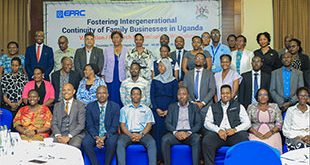African elites operate in a specific social context ‘ of a majority of voters being poor peasants. Peasant agriculture depends predominantly on nature. The vagaries of weather have across time and space fostered the evolution of particular social adaptations which James Scott in The Moral Economy of the Peasant called ‘the subsistence ethic.’ Patterns of reciprocity, patron-client ties, work sharing and extended family systems are social institutions erected to provide insurance against the risk of starvation. These constitute the moral universe of peasants and inform how their choices are made.
For example, a hungry or sick peasant goes to a better-off neighbour or relative for assistance and expects his needs to be attended to. Likewise, the better-off relative or neighbour responds positively because that is what is expected of him/her by the society’s value system. To act otherwise is seen as wrong and attracts social sanction in form of negative gossip and a bad reputation. However, such acts are investments too; in helping the needy, the rich neighbour cultivates a reputation of being a ‘good man.’
This value system at the level of the village creates a specific form of politics at the national level; politicians who want to cultivate a political following must build a reputation of being generous. For those in political office, this reputation is built through the distribution of favours using public funds, often called corruption. So Minister X will use public funds to pay fees, meet funeral expenses and other private needs of his constituents. In return, the masses reward him/her with loyalty and support.
Poor people attach great importance to expressions of kindness and generosity. To them a good leader is a man who gives gifts directly in form of money and goods ‘ like African chiefs of old. When Museveni openly gives envelops stuffed with cash to ordinary people, as has become his norm these days, he is addressing a vital existential need to gain political advantage. He does it publicly in order to show others that when they get access to him, their personal needs will be addressed.
Therefore, what goes for democratic competition in most of Africa is a contest among elites to control power; not to change how it is organised, exercised and reproduced. Instead of representing the wishes of the population at large, many ‘democratic’ governments in Africa actually represent the interests of a few elites. This alternation of elites in power, as we see in Ghana, is what is called democracy in Africa.
This nuance finds little expression in academic and intellectual circles in Africa and the West because the debate on democracy ignores our context. Instead, we are always seeking the right analogies from the experience of societies with an entirely different social structure. This explains the fanatical obsession with procedures and rituals over the substance of democracy.
It is here that I disagree with a large section of the democratic crowd in Africa when it comes to Paul Kagame in Rwanda. Kagame represents the first and most important attempt to reform politics in Africa from being elite-centred to being people-centred. Rather than seek to win the support of a few elites, he is building a state that can deliver services to the anonymous citizen without much recourse to political connections and personal patronage.
Thus, be it in education, health, agricultural extension services ‘ a whole broad spectrum of public policy issues ‘ ordinary Rwandans do not need political Godfathers to access education scholarships, medical evacuation, fertilizers etc. This is not to say that Rwanda has arrived. Rather, it is that Kagame is building the actual foundation of a modern democratic state by turning the people of Rwanda from being clients into citizens. Clients get favours from patrons; citizens get rights from the state.
It is possible that Kagame does this because of a strong authoritarian streak which has made him refuse to yield ‘democratic space’ to elites contesting for power in Kigali. Yet it is precisely by resisting pressures from powerful political elites that Kagame has been forced to empower the masses. Rather than use a few ethnic intermediaries to win their co-ethnics, Kagame goes directly to the voter through service delivery. This strategy has forced him to build an effective and functional state.
Kagame is disbanding elite privileges ‘ like stealing public funds and yet remain in office because you are indispensable, untouchable; if removed, you can turn entire communities against the president. We know that many presidents in Africa fail to crack down on the corrupt because their co-ethnics will turn against the ruling party. Kagame has said ‘NO’ to this blackmail. The losers in his reforms are few; but the most influential, vocal and articulate sections of society. They speak on BBC and VOA. They have access to Human Rights Watch and Reporters’ Without Borders to complain.
Meanwhile, the beneficiaries of Kagame’s reforms are largely the poor majority who are illiterate peasants. They have little or no voice in local and international media or among human rights groups. These voiceless beneficiaries of progressive change should count on my untiring support; for I believe that the primary duty of government is to serve the most ordinary person ‘ that anonymous citizen who has no political Godfathers.
amwenda@independent.co.ug
 The Independent Uganda: You get the Truth we Pay the Price
The Independent Uganda: You get the Truth we Pay the Price





